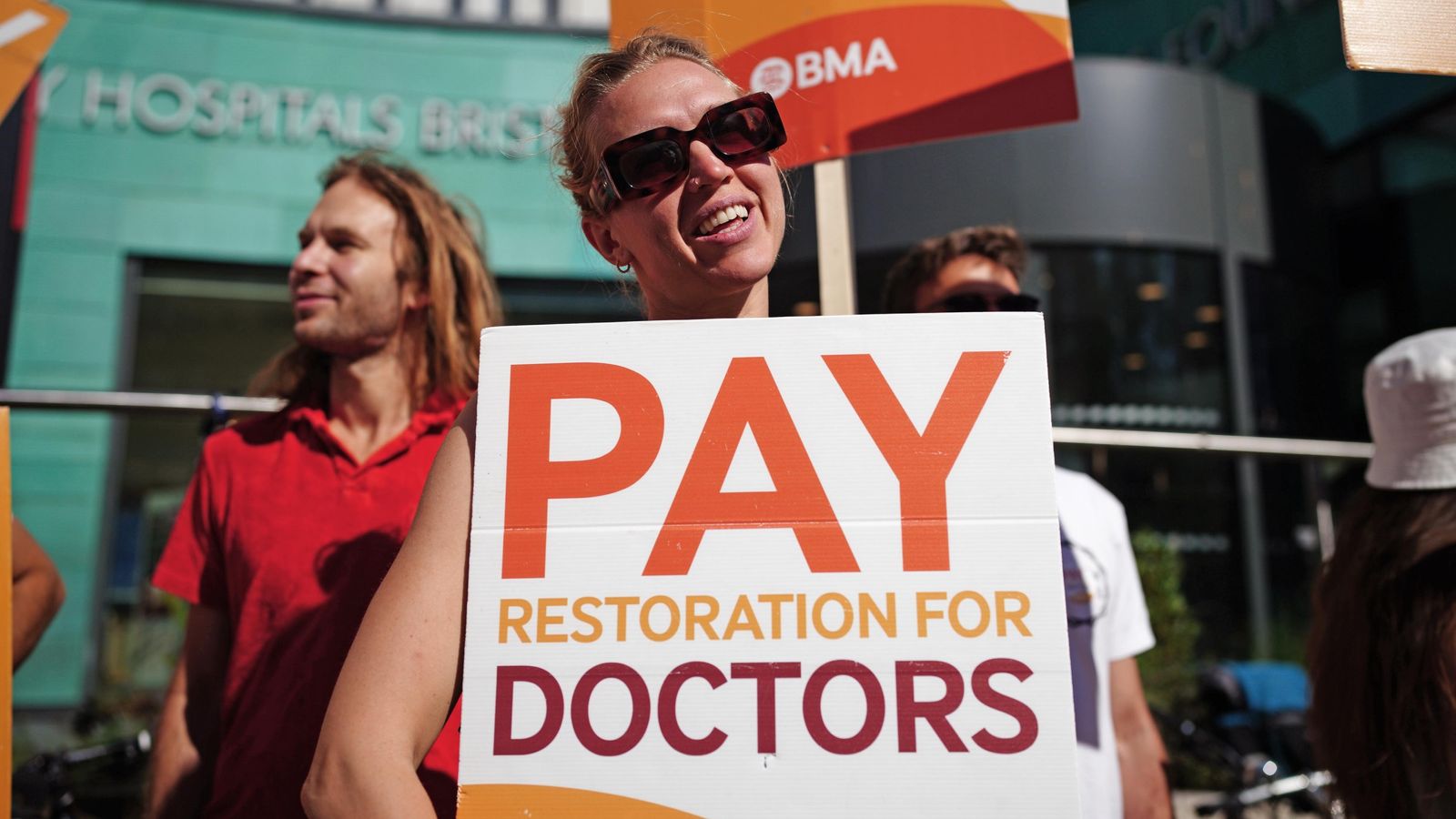Health Secretary Steve Barclay criticises junior doctors for ‘walking away’ from talks ahead of strike

Health Secretary Steve Barclay has criticised junior doctors, accusing them of “walking away” from talks over pay and conditions.
The British Medical Association – the union representing many from the profession – has called a five-day strike in July and is demanding a rise of 35% to restore their wages to 2008 levels.
It has also accused the government of refusing to get round the table to negotiate a deal.
But Mr Barclay told Sky News that junior doctors had “refused to move” during three weeks of talks earlier this year, adding: “It was the junior doctors sadly who walked away from the discussions and called a further strike.”
Politics live: Striking doctors ‘walked away’ from talks, says Barclay
Junior doctors went on strike for three days in June, following a four-day walk-out in April and three days in March.
The BMA claims pay has decreased by more than a quarter since 2008 when inflation was taken into account, so the 5% offer on the table was far below what was needed.
And they said many doctors were burnt out from an increasing workload.
But Mr Barclay said the 35% pay restoration demand was not “affordable in the context of inflation and the other pressures” on the economy.
Advertisement
Speaking to Sky News’ Sophy Ridge on Sunday programme, the health secretary said the upcoming strikes were “hugely concerning”, with thousands of appointments and pre-planned operations set to be disrupted.
But he put the blame at the door of junior doctors and the BMA, saying they were the ones refusing to negotiate.
“We have [talked to them], we had three weeks of talks… the department agreed to bring in an intermediary,” he said. “But not withstanding [the intermediary’s] excellent work, the discussions that we had with the junior doctors to date, they have refused to move from a 35% demand.
“I don’t think that in the context of the wider economy, [with] the need to get inflation down, that is a fair demand.”
Mr Barclay conceded that “both sides need to move” to reach an agreement, and claimed the government were “willing to do so”.
But he said that without the strikes being called off, there was little room for negotiation.
“We have been consistent, not just in health but in all departments, that if people suspend the strikes then we can get round the table and have talks, but at the moment the junior doctors have walked away from the talks,” said the health secretary.
“We were in middle of discussions with them. There were a range of other factors that they have raised with me in terms of annual leave that is often cancelled at short notice, rotas that are changed, some of the wellbeing issues around circumstances in hospitals.
“We are happy to discuss [those issues].”
Sophy Ridge also quizzed Mr Barclay on whether the government would accept recommendations from public sector pay review bodies for wages rises next year after speculation Prime Minister Rishi Sunak planned to block them in an attempt to tackle inflation.
Pay review bodies or PRBs take evidence from across sectors like the NHS and education each year, as well as submissions from government, before saying what wage rises should be introduced for the following 12 months – and they are expected to say healthcare staff should have a 6% uplift.
Amid anger from unions about the figures failing to match inflation last year, the health secretary insisted it was right for ministers to “continue to defer to that process to ensure decisions balance the needs of staff and the wider economy”.
But this morning, he refused to confirm ministers would accept the PRB proposals, saying instead they would look at them “in the round”.